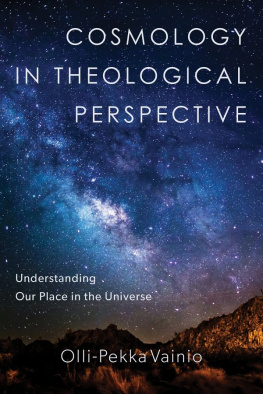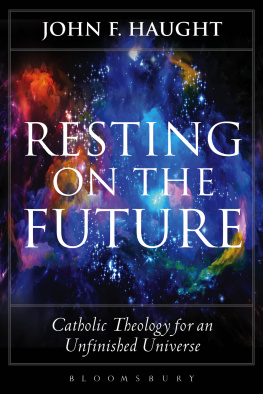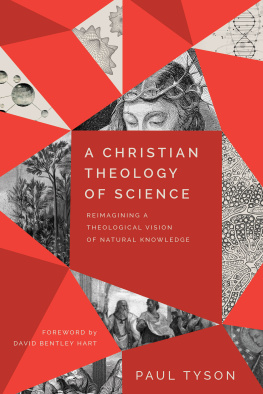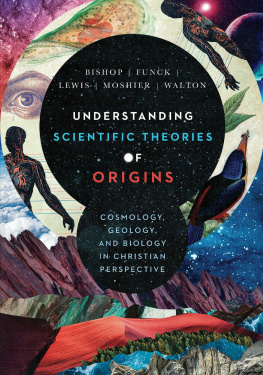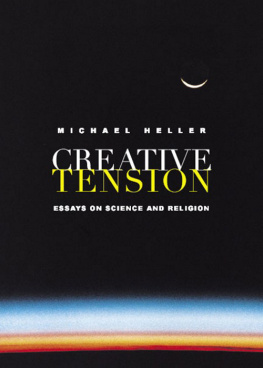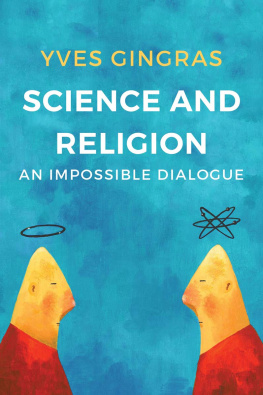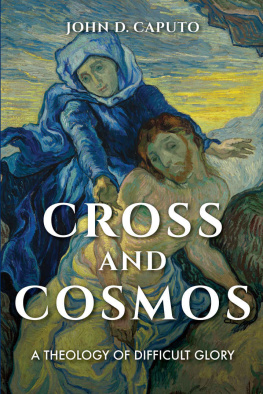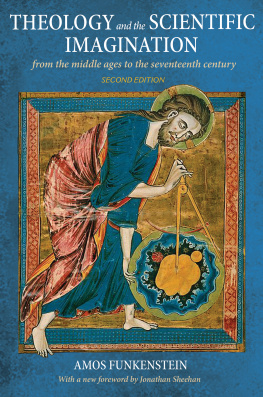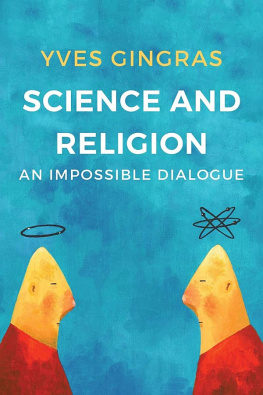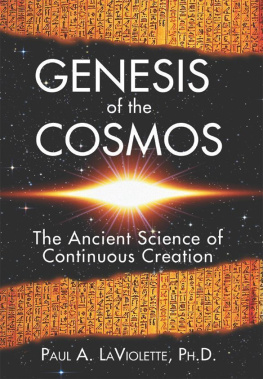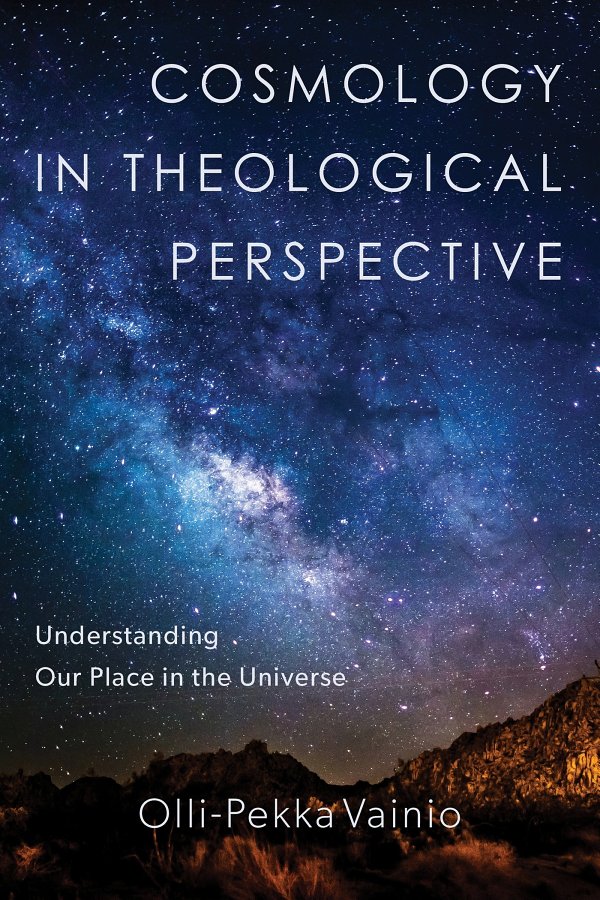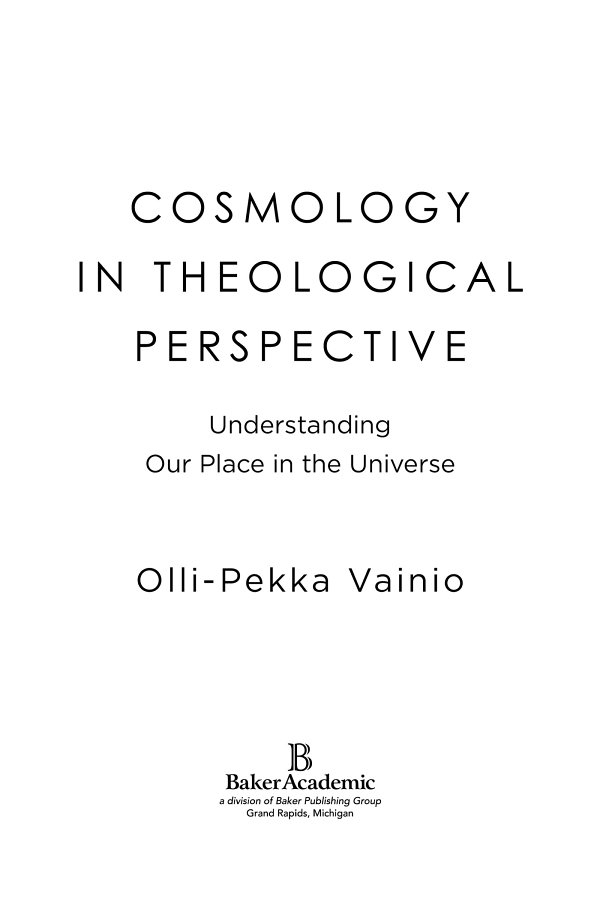1. Every Saga Has a Beginning: Philosophical Cosmologies in the Ancient World
2. The Voyage Home: Cosmos in Early Christian Thought
3. Resistance Is Futile: Galileo, Newton, and
4. All These Worlds: On the Multiverse
5. If Its Just Us, It Seems Like an Awful Waste of Space: On Human Uniqueness
6. Infinite Space, Infinite Terror: Our Cosmic (In)Significance
7. In Space No One Can Hear You Scream? God and Being
8. There Is No Gene for the Human Spirit: Images of God
9. Come with Me If You
10. To Boldly Go: Beings in Search of Greater Understanding
Preface
A great deal of writing of this book took place under the auspices of the Center of Theological Inquiry (CTI), Princeton, New Jersey, which hosted a program on the societal implications of astrobiology. Having followed debates on cosmology and religion from a distance, I was privileged to spend a year thinking through some of the theological and philosophical issues that are related to the possibility of life outside our own planet. Theologians and philosophers have been dealing with these themes for a very long time. More recently, C. S. Lewis addressed many of these questions in the mid-twentieth century, both in his science fiction and academic writings. His more analytical writings on the subject remain relevant to us today as guides how to think about the role of humans in the cosmos, while his fiction still has the power to stir our imagination. For these reasons, I decided to use Lewis as an example and as a conversation partner while writing this book. This is, however, not a book on Lewis but an experiment in thinking with him about cosmological issues of our own time.
The program at CTI was funded by NASA and the John Templeton Foundation. I am thankful for all of them and our merry band of scholars, with whom it was a great pleasure to discuss, debate, and marvel at the wonders of our cosmos. I am especially grateful for the following people who read parts of the manuscript and offered valuable advice and support: Max Baker-Hytch, Jesse Couenhoven, Andrew Davison, David Fergusson, Eric Gregory, Rope Kojonen, Zo Lehmann Imfeld, Timothy Jenkins, Andreas Losch, Robin Lovin, John McCarthy, Gerald McKenny, Douglas Ottati, Timo Nisula, Vesa Palonen, Erik Persson, Adam Pryor, Frank Rosenzweig, Susan Schneider, William Storrar, Fred Simmons, Aku Visala, and the anonymous referee. R. David Nelson and Eric Salo from Baker were immensely helpful during both the writing and the editing processes. Albion Butters helped me with English. All remaining mistakes are my own.
Chapters 8, 9, 10, and 11 use portions of my previously published articles, respectively: Dark Light: Mystical Theology of Edith Stein, Journal of Analytic Theology 4 (2016); The Curious Case of Analogia Entis: How Metaphysics Affects Ecumenics, Studia Theologica 69 (2016); Imago Dei and Human Rationality, Zygon 49 (2014); and Reason and Imagination in the Thought of C. S. Lewis, in Origins of Religion , ed. Hanne Appelqvist (Helsinki: SLAG, 2018). They are all used with permission.
A Note on the Chapter Titles
Each chapter title is an allusion to or a quote from a different science fiction movie or television show, in this order: Close Encounters of the Third Kind (1977), Star Wars: Phantom Menace (1999), Star Trek IV: The Voyage Home (1986), Star Trek: First Contact (1996), 2010: Odyssey Two (1984), Contact (1997), Event Horizon (1997), Alien (1979), Gattaca (1997), The Terminator (1984), and Star Trek: The Original Series (1966).
Abbreviations
| ANF | Ante-Nicene Fathers |
| ca. | circa , approximately |
| CR | Corpus Reformatorum |
| d. | died |
| fl. | floruit , flourished |
| Gr. | Greek |
| Lat. | Latin |
| LW | Luthers Works |
| NPNF | Nicene and Post-Nicene Fathers , Series 1 |
| NPNF | Nicene and Post-Nicene Fathers , Series 2 |
| sec. | section |
| ST | Thomas Aquinas, Summa Theologiae |
| WA | Weimarer Ausgabe (Weimar edition of Luthers Works ) |
Introduction
Close Encounters
In a widely read and commented-on Huffington Post blog, an author claimed that evidence of alien life would mark the end of religion.
Let us be clear that the Bible is unambiguous about creation: the earth is the center of the universe, only humans were made in the image of god, and all life was created in six days. All life in all the heavens.
Although the authors remarks portrayed a poor understanding of religion, theology, and the history of philosophy, the popularity of the blog post demonstrated the importance of inquiry about the interface between contemporary cosmology, astrobiology, and religious-existential
Instead of rushing off to discuss the question of life outside the known human sphere (which is just one question among many), we need to start from the beginning in order to properly grasp the scale and depth of this line of inquiry. We humans have always had a special connection with the stars and other entities beyond our immediate reach. The earliest cave paintings reveal glimpses of cultures that felt part of something larger than their earthly existence. Cosmology was among the topics addressed by the first philosophers, and perhaps the most important of the early philosophical cosmologies, Platos Timaeus , still has the power to stir our imagination. Yet nowadays many people consider questions about the cosmos to be scientific, not philosophical.

